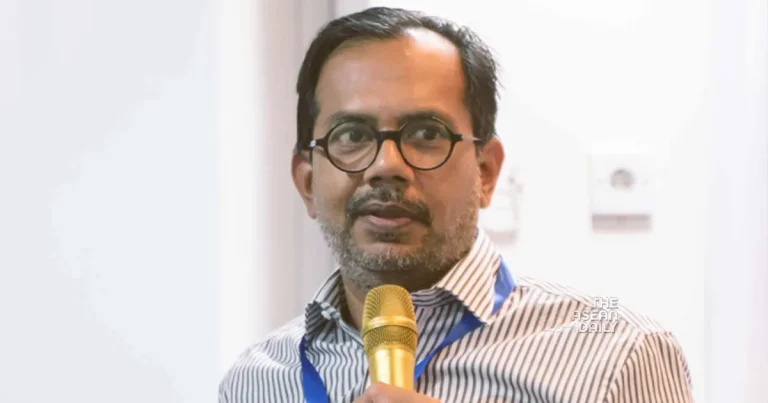7-2-2024 (JAKARTA) Mr. Haris Azhar, 48, a civil rights activist, has faced repeated attempts to silence him during his two decades of advocacy work.
These efforts typically start with government representatives offering inducements or projects to keep him quiet and in their favor. They escalate with online attacks by “buzzers,” individuals paid to disseminate social media content containing false narratives to discredit him. Subsequently, he often finds himself reported to the police and charged with criminal offenses under laws such as the contentious Electronic Information and Transactions Law, which critics argue stifles freedom of expression.
In various instances, Mr. Haris has been targeted for his criticism of Indonesia’s Omnibus or job creation law, which some perceive as excessively pro-business at the expense of workers and the environment. In April last year, he and fellow activist Ms. Fatia Maulidiyanti faced charges of defaming Coordinating Minister for Maritime Affairs and Investment Luhut Pandjaitan after speculating in a YouTube video about links between government military operations in Papua and the minister’s alleged mining interests.
Rights groups have expressed concerns about the operation of gold mines in Papua, citing risks to the land rights of indigenous Papuans and alleging abuses by security forces against civilians.
In January, Mr. Haris and Ms. Fatia were acquitted after a judge ruled that Mr. Luhut had links to the mining company operating in Papua and that their statements were based on research and analysis.
However, the prosecution has indicated its intent to appeal the decision.
Mr. Haris, also the founder of the Lokataru Foundation, a non-profit organization advocating for human rights and the rule of law, believes that activist voices have been increasingly stifled during President Joko Widodo’s administration.
As Indonesia prepares for its presidential elections on Feb 14, with more than 200 million eligible voters, concerns loom over the candidates’ commitment to addressing human rights issues. None of the three main candidates—Anies Baswedan, Prabowo Subianto, and Ganjar Pranowo—have outlined concrete plans to tackle ongoing problems such as the curbing of free speech, abuse of power by the police, and unresolved cases of violence against pro-democracy activists.
Prabowo Subianto, a former general accused of human rights violations, leads the polls by a significant margin, raising apprehensions within Indonesia’s reform movement, which emerged after the end of Suharto’s dictatorship in 1998. While some progress has been made since then, activists believe that recent years have seen setbacks in areas like freedom of expression and law enforcement.
Despite pledges from candidates to address human rights concerns, activists remain skeptical, viewing many promises as merely campaign rhetoric.
In addition to addressing past human rights violations, activists are urging the next president to repeal or revise laws that suppress freedom of expression and to ensure impartial investigations into allegations of human rights abuses by security forces.
While Indonesia grapples with its dark past, including incidents like the Semanggi shootings of 1998, which claimed the lives of pro-democracy activists, there are challenges in holding perpetrators accountable due to legal and legislative obstacles.
As Indonesia navigates its political landscape, the fight for justice and human rights continues, with activists like Mr. Haris Azhar undeterred by attempts to silence them.




